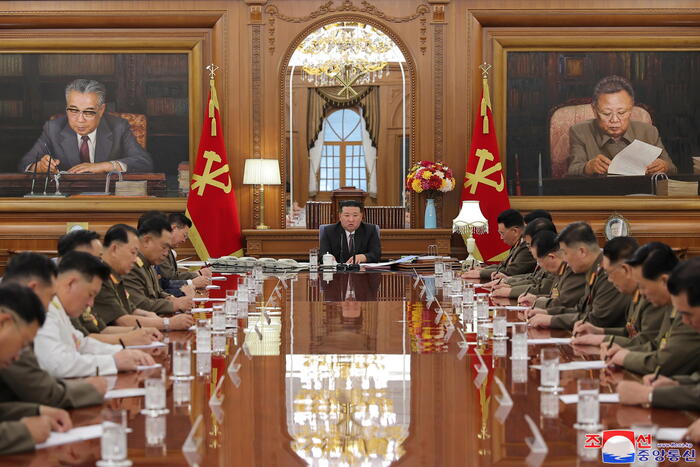The head of Russian diplomacy, Sergey Lavrov, said that Moscow wants “respectful” relations with Washington, stressing the importance of Russia obtaining tangible guarantees for its security against the backdrop of the Ukraine crisis. “We want good, fair, respectful and equal relations with the United States, as with any other country in the world,” Lavrov said in an interview broadcast on Russian television, stressing that Russia “does not want to remain in a situation where its security is routinely violated.” Then Lavrov spoke about the eastern expansion of NATO, recalling that “each time, it turns out that the line that (NATO countries) must defend is moving more east” and “now it is already getting closer to” Ukraine. Finally, the Russian Foreign Minister announced that Moscow It will soon send a formal request to NATO and OSCE countries “urging them to specify how they intend to implement their commitment not to enhance their security. at the expense of others.”
“Russia must continue its diplomatic commitment and withdraw the military forces it has amassed along the borders of Ukraine and in the temporarily occupied territories.” The new appeal to Moscow was drafted by Kyiv Foreign Minister Dmytro Kuleba, via a message on Twitter.
Meanwhile, Pentagon spokesman John Kirby told Fox that Russia increased the number of its troops on the Ukrainian border this weekend. Vladimir Putin continues to “reinforce forces on the border with Ukraine – Kirby highlights – and we also saw this over the weekend”.
US President Joe Biden had announced in the past few hours that the United States would send troops to Eastern Europe in NATO countries in the short term. Biden responded to reporters after following up on a question about Ukraine. Sending a limited number of troops to Eastern Europe “in the short term” comes in the wake of growing concerns about a possible Russian invasion of Ukraine. “I will be sending troops to Eastern Europe to NATO countries in the short term. Not much,” said Biden, returning from a visit to Pittsburgh, Pennsylvania, during which he had the opportunity to visit the collapsed bridge a few hours before his arrival. The Pentagon has put 8,500 soldiers on alert for possible deployment in NATO countries in Eastern Europe.
In his phone call with Ukrainian President Volodymyr Zelensky, Joe Biden “said there is a real possibility that the Russians will invade Ukraine in February,” National Security Council spokeswoman Emily Horne said in his phone call with Ukrainian President Volodymyr Zelensky. The latter noted that Biden also said it “publicly” and that the administration also “warned about it in January.”
The Pentagon announced some units that were put on standby to eventually be deployed to Eastern Europe in the event of Russia’s invasion of Ukraine, for a total of 8,500 men. Among those, said spokesman John Kirby, are elements of the 82nd Airborne and 18th Airborne Corps, both based at Fort Bragg, North Carolina. There are also elements of the 101st Airborne Division from Fort Campbell, Kentucky, and elements of the 4th Infantry Division from Fort Carson, Colorado. Also participating are Davis-Monthan Air Force Base, Arizona, Fort Hood, Texas, Lewis McCord Air Force Base, Washington, Fort Polk, Louisiana, Robins Air Force Base, Georgia, Fort Stewart, Georgia, Wright-Patterson Air Force Base, and Ohio. The mobilized units include medical, air, logistical and combat support. Most of the alerted forces are for the NATO Rapid Reaction Force.
Head of Russian Diplomacy Sergey Lavrovhe said that day Moscow wants “respectful” relations with WashingtonHe stressed the importance of Russia obtaining tangible guarantees for its security against the backdrop of the Ukraine crisis. “We want good, fair, respectful and equal relations with the United States, as with any other country in the world,” Lavrov said in an interview broadcast on Russian television, stressing that Russia “does not want to remain in a situation where its security is routinely violated.” Then Lavrov spoke about the eastern expansion of NATO, recalling that “each time, it turns out that the line that (NATO countries) must defend is moving more east” and “now it is already getting closer to” Ukraine. Finally, the Russian Foreign Minister announced that Moscow It will soon send a formal request to NATO and OSCE countries “urging them to specify how they intend to implement their commitment not to enhance their security. at the expense of others.”

“Freelance social media evangelist. Organizer. Certified student. Music maven.”



